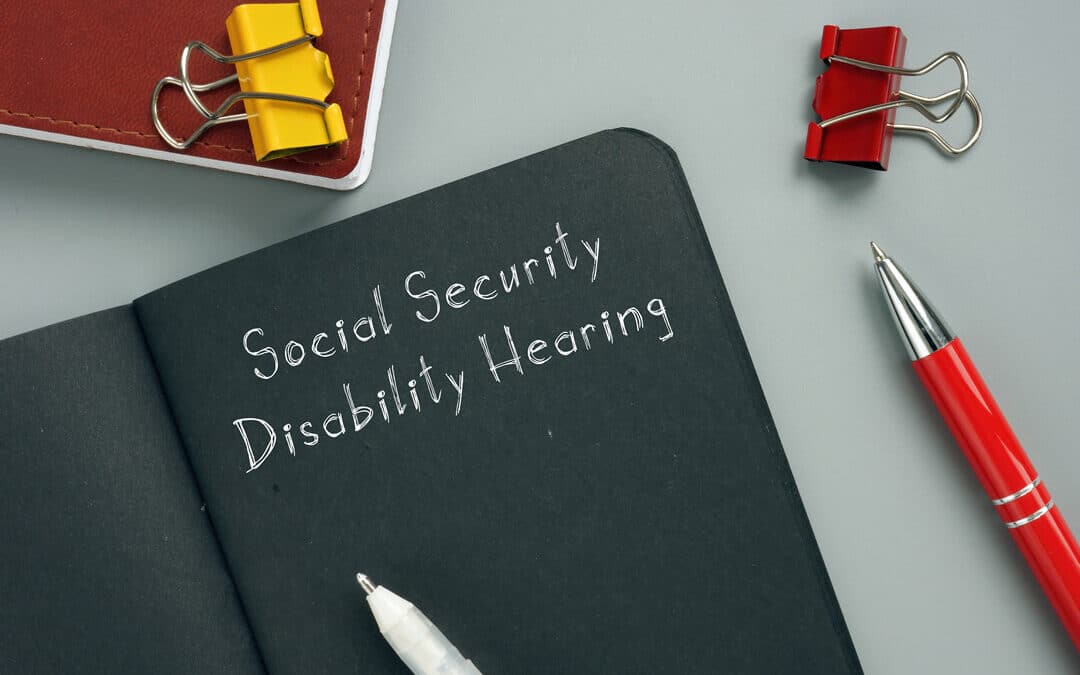Many who get denied disability do not take the step of appealing to a disability hearing. They fear it will be complicated and not help them win their disability benefits. But, the hearing is not complicated and is the part of the disability appeals process when the most claims get accepted.
This article explains what happens at the hearing so you do not have to fear taking that next step in getting the benefits you need.
What is a Social Security Disability Hearing?
The purpose of the Social Security disability hearing is to help establish if your condition is too disabling to allow you to work. It allows you and your representative (if you have one) to present your case to an adjudicator in person.
A disability hearing is much less formal than normal courtroom hearings. Disability hearings take place at a Social Security Administration (SSA) office or rented venue, usually within 75 miles of where you live. The SSA may even hold a hearing by video conference if you can show you cannot travel. Disability hearings are also usually quicker than normal courtroom hearings. They typically last 30 minutes to an hour.
The people allowed in the hearing include:
- the administrative law judge (ALJ)
- you and your representative (if you have one)
- the court reporter
- your witnesses (if you have any)
- vocational and/or medical experts (if any called to testify)
What Happens at a Social Security Disability Hearing?
Before your disability hearing, the ALJ will have reviewed all the documentation you have submitted about your claim. You and your representative will also have had time to prepare for questions and gather any extra documentation to help prove your case.
What happens at your disability hearing depends upon how the ALJ assigned to you administers the hearing. But, the following actions typically happen during a disability hearing:
- The court reporter will swear in you, any witnesses you bring, and any experts in attendance.
- The ALJ will read a basic statement introducing your case and the issues involved.
- The ALJ will question you about your medical condition and treatment, your past employment, and how your medical condition affects your ability to work.
- The ALJ will allow your representative to speak on your behalf. This usually involves your representative asking you more questions about your disability and presenting any new documents. This can also be the time your attorney and the ALJ interview any witnesses you may have brought.
- The ALJ and your attorney will question any expert witnesses present. Medical experts will answer questions about your medical condition and how it affects your daily life. Vocational experts answer questions (often hypothetical scenarios) about your ability to perform other jobs despite your medical condition.
- The ALJ may ask you more questions.
- The ALJ will allow you and/or your representative to make additional comments.
After the hearing, the ALJ will study all the testimonies and evidence then issue a written decision. The SSA will notify you or your representative of the decision.
Getting Help with Your Social Security Disability Hearing
You can represent yourself at your disability hearing. However, statistics show that having the help of a disability lawyer increases your chances of getting approved for benefits.
A Social Security disability lawyer has a better understanding of what questions may be asked and what experts may say at your hearing. They can help prepare you to give your testimony and answer questions. They will know more about how to defend your case.
If the SSA has denied your disability claim, let our experienced disability lawyers help you appeal. Brock & Stout’s disability lawyers have over 20 years of experience preparing clients for their disability hearing and guiding them through it. Contact us today for a free evaluation to see if we can help you.

